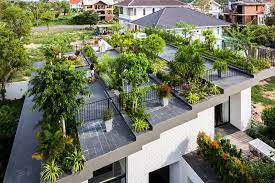Gardening can be an incredibly rewarding and peaceful experience. While some have a natural green thumb, others may feel intimidated or unsure of where to start. However, cultivating a green thumb and creating a beautiful, blooming garden is more accessible than one may think. This beginner’s guide will provide tips and tricks on how you can successfully cultivate and maintain your very own garden, regardless of your experience level Building gardening confidence? The Dedicated House has you covered.
Evaluate Soil Composition and Irrigation
Before beginning to plant, it’s essential to assess the quality of your soil and the drainage system in your garden. The composition of soil varies depending on the region and environment, affecting plant growth. Ideally, soil should be nutrient-rich and drain well. To determine the quality of your soil, consider conducting a soil test. Many plant nurseries and extension offices can provide this service and offer analysis and recommendations on fertilizer and soil amendments.
Additionally, consider the irrigation system in your garden. Ensure plants receive adequate hydration by providing consistent access to water. Many gardeners prefer drip irrigation systems, which can conserve water while effectively watering plants.
Select the Right Plants
Selecting plants is a fun process, but don’t simply choose the prettiest available. Evaluate plants based on the level of sunlight exposure your garden receives, soil composition, and water requirements. Consider native and adapted plants in your region as they likely require less maintenance and water. Research plant growth and consider the timing of planting. Some vegetables prefer cooler or warmer weather, and others may grow optimally during specific times of the year.
Provide Proper Maintenance
Proper maintenance is crucial in cultivating a successful garden. Regular watering, fertilizing, pruning, and pest control are essential tasks in maintaining healthy plants. Consider using pesticides that are specific to the type of pest, as indiscriminate application can harm beneficial insects and plants. Additionally, regularly pruning plants can encourage growth, produce more flowers, and keep plants healthy.
Composting
Composting is an eco-friendly way to reduce waste and provide nutrient-rich soil for your garden. Collect food scraps, yard waste, and even newspaper and cardboard paper. Create a compost pile in a designated area of your garden. Composting can help improve the quality of your soil, reduce the need for fertilizers, and enhance plant growth.
Enjoy your Garden
Finally, enjoy and appreciate your creation. Gardens come in many shapes and sizes, and there’s no wrong way to cultivate one. Gardens can also be therapeutic and offer a peaceful retreat from the rigors of everyday life. Take a break to enjoy the beauty and serenity of your garden, and if you’re feeling extra generous, share some of your fresh produce with your friends and family.
Conclusion:
Cultivating a green thumb and creating a successful garden can be a deeply satisfying hobby, but it requires patience and effort. Evaluating soil composition, irrigation, selecting the right plants, providing proper maintenance, compositing, and enjoying your garden are essential steps in ensuring a flourishing garden. Remember, gardening is a journey that offers endless opportunities to learn and grow. With consistent effort, you can create a blooming oasis in no time!
